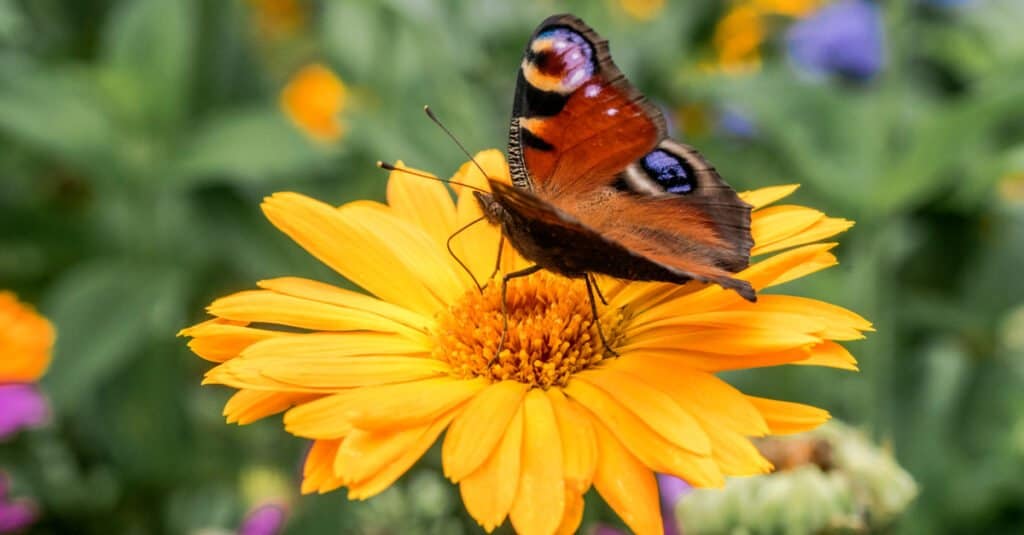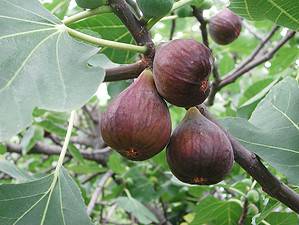Pets that enjoy exploring the great outdoors can be destructive to gardens. Additionally, over 700 plants are toxic to cats and dogs, ranging from mild to severe, and it’s important to know which ones are safe for your pets. Though beautiful and joyful, marigolds are an example of a plant toxic to cats and dogs. Keep reading to learn how poisonous marigolds can be and what to do if your pet shows signs of toxicity.
Are Marigolds Poisonous to Dogs or Cats?

Marigolds are mildly poisonous to dogs and cats, although symptoms usually clear within an hour.
©Nick Pecker/Shutterstock.com
The ASCPA defines marigolds as non-toxic to cats and dogs. Yet, if your dog or cat eats too many of these attractive flowers, he may experience negative effects like stomach upset. This side effect, however, is not caused by any toxicity from the flower but as a result of eating something unusual.
On the other hand, the Tagetes species is known to create more issues for pets, particularly cats. Its toxicity is usually relatively moderate, but it needs to be addressed swiftly if symptoms continue for more than an hour.
Training your pets to avoid eating yard plants and keeping an eye on them is therefore essential.
Side Effects of Marigold Ingestion for Cats and Dogs

Common side effects of marigold ingestion for cats and dogs include vomiting, diarrhea, and irritation.
©EQRoy/Shutterstock.com
A lot of cats and dogs are fascinated by these attractive blooms, placing marigolds high on the list of concerns. For dogs and cats, marigolds can cause some unpleasant side effects when ingested.
Signs of Marigold Ingestion
- Dehydration
- Diarrhea
- Excessive Drooling
- Skin Irritation
- Vomiting
This is not a complete list of symptoms, although these are the most prevalent. There is no way to know how a particular pet will respond to ingesting marigolds. Therefore, it is crucial to take your pup to a vet should he demonstrate any of the above-stated indicators for longer than an hour. In most cases, symptoms are extremely mild and will pass quickly.
What To Do If Your Dog or Cat Shows Symptoms of Marigold Toxicity

©Vasmila/Shutterstock.com
First, give your pet water to drink for the next 12 to 24 hours. It’s best to abstain from feeding your pet solid food until the symptoms cease. When in doubt, always contact your vet. Some vets may recommend that you wait it out at home if the symptoms are mild. If your pet exhibits any signs of skin discomfort, they may have marigold sap on their coat and skin. You can remove it by washing your dog or cat with warm water and a pet-friendly shampoo. Although waterless shampoos may be less helpful in this situation, you can use one if your cat is averse to water.
You should absolutely take your dog or cat to the vet if any symptoms persist for more than an hour. Typically, your pet shouldn’t be at risk from eating these flowers. But sometimes, poisoning might emerge from the ingestion of chemicals such as pesticides and fertilizers that were sprayed on the plants. In such cases, veterinary fluid therapies may be recommended especially when an animal’s symptoms are severe or persist long enough to cause malnourishment or dehydration.
Conclusion
Drooling, skin irritations, vomiting, and diarrhea can all lead to dehydration in pets. So, it’s best to keep an eye out for any of these symptoms and monitor your pets carefully.
If your cat or dog has access to marigolds, keep a close eye on him. Even though they aren’t regarded as very hazardous, marigolds can still cause slight harm to your pet. Discourage your pets from eating these colorful blooms, and they’ll be less likely to consume other, potentially more dangerous plants in the future.
The photo featured at the top of this post is © Quang Ho/Shutterstock.com
FAQs (Frequently Asked Questions)
Did You Know?
For centuries, the marigold flower has been associated with the virtues of beauty; warmth; creativity; ambition; and the celebration of the dead. In pre-Hispanic Mexico, marigolds were regarded as the flower of the dead and are still utilized as a symbol during Day of the Dead celebrations.
Thank you for reading! Have some feedback for us? Contact the AZ Animals editorial team.







